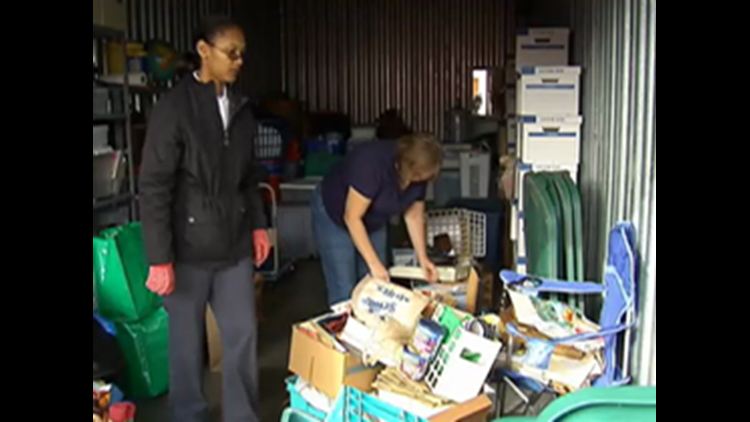A Franklin County woman said that her addiction of accumulating items ended and she was nolonger saving belongings inside her home.
Cindy Carroll is a recovering hoarder. She recently took 10TV's Shayla Reaves inside astorage facility where many of her belongings were moved from her home.
She started attempting to clear out the facility more than a year ago.
SLIDESHOW: Images From Report
"Growing up, my dad was in the service, so we moved a lot," Carroll said. "Every time wewould move, I would hang onto my stuff, as early as 5-years-old."
According to Carroll, she started hoarding when her children moved out of her house.
Hoarding is an emotional attachment to things and the continued process of acquiringitems. Franklin County Environmental Court Judge Harland Hale said that about 5-6 hoardingcases make it to his courtroom each month.
The cases Hale said that he sees are considered the very extreme, with many of the peopleinvolved not seeing the extent of their addiction.
"Those are the folks that most of the time we try to put on probation and get them mental help,"Hale said. "That will help them get in a position where they'll act on their own to clean itup."
Although jail time is an option, Hale said that is rare. Compliance occurs in more thanhalf the cases he sees, taking about 6 to 9 months.
Judy Lair, a clinical counselor, works with people who hoard. She said that for some,court is the place of last resort. It can be the difference between getting better orcontinuing to feed the addiction.
"The court system can be a wakeup call to someone saying, 'OK. I guess this is a harderproblem that I thought it was,'" Lair said.
According to Lair, hoarder recovery is about maintaining control of what happens to theirbelongings. A television show about hoarding changed her life.
"The lady actually had a mental breakdown and was actually suicidal," Lair said. "Thereneeds to be more out there. People need to understand this disorder."
Tiffany DeSilva, a professional organizer, has been working with Carroll for the last 18months.
"(Carroll) summed it up really well to me," DeSilva said. "She actually said people thinkthat this is laziness. It takes a lot of work to live and survive in her space and get thingsdone."
DeSilva said that if Carroll had another choice, she would not have chosen to live the way shedid.
"I kind of call myself crazy but I'm not crazy, but that's what people think," Carrollsaid. "It's just how I cope. It's a mental illness."
Cleaning the storage facility is now part of fulfilling Carroll's dream.
"I have a grandson that's 6-months-old and I want him to be able to come to my house," Carrollsaid. "I go see him but he can't come see me yet, but he will."
According to Carroll, she is now focused on cleaning up what she acquired. Her case wasnever handled by a court. Instead, she sought help on her own, Reaves reported.
Carroll said that wants to encourage others to do the same.
More Information:
Previous Story:
November 4, 2010: Recovering Hoarder Finds Help To Get Rid Of What She Collected



